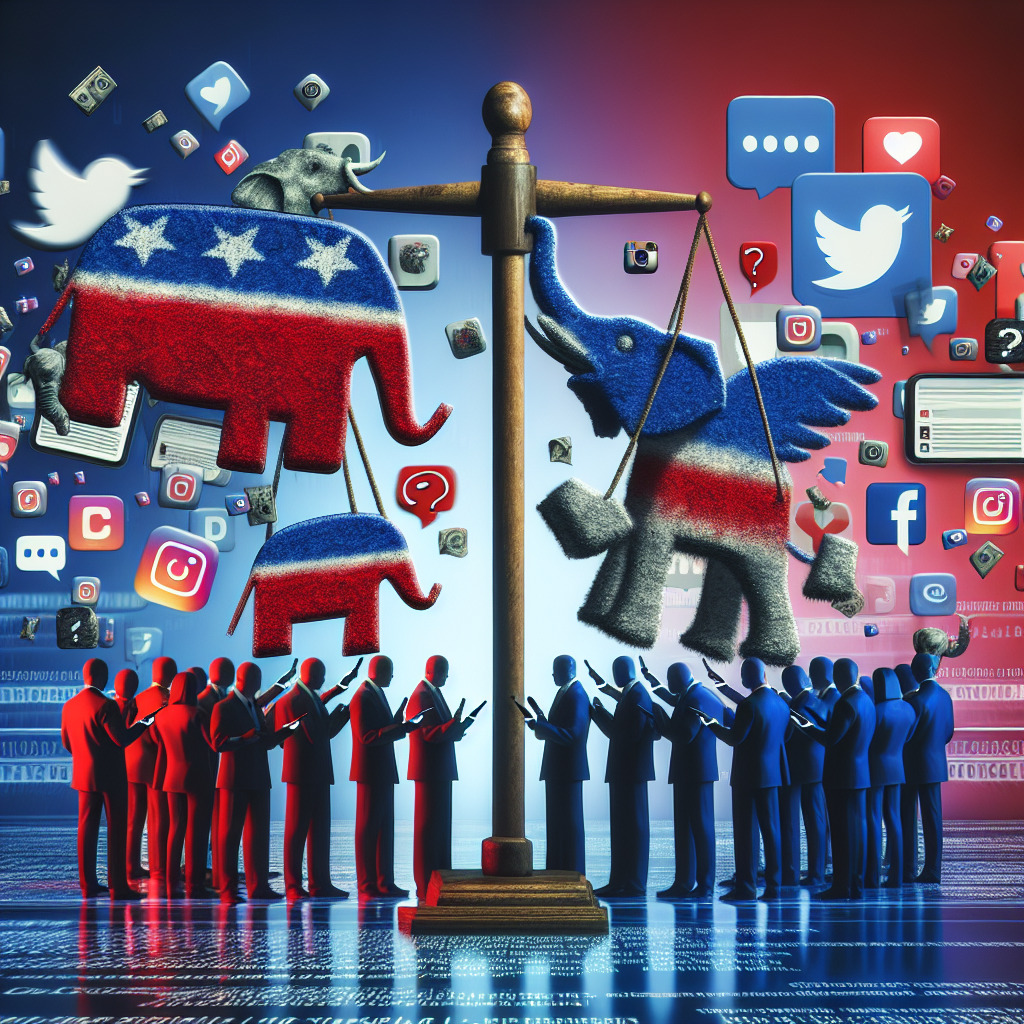Key Takeaways
Introduction
In recent years, the debate around election misinformation on social media has intensified, with many political actors actively influencing how platforms manage content. The spotlight has been on the Republican Party’s role in shaping these platforms’ policies and responses to potential misinformation. This topic is critical, as it underscores the complex relationship between political forces and tech companies and the implications for democracy and free speech.
The Nature of Election Misinformation
Understanding election misinformation is crucial to grasp why it attracts so much attention. Misinformation can take many forms, from misleading statistics to outright false claims. In elections, this misinformation is especially damaging as it can sway voter beliefs, undermine trust in democratic processes, and fuel polarization.
Social Media’s Role
Social media platforms have become primary information sources for many citizens. This transformation means that even minor inaccuracies can spread rapidly, affecting millions. As intermediaries, platforms like Facebook, Twitter, and YouTube find themselves in challenging positions, moderating content while respecting free speech.
Republican Pressure on Social Media Companies
The involvement of the Republican Party has significantly shaped how social media platforms address election misinformation. Critics claim that Republican lawmakers and influencers have pressured platforms into moderating content in ways that might not align with their initial policies.
- Influence and Scrutiny: Republicans have focused significant attention on perceived biases within these platforms’ moderation policies. Even before the 2020 presidential election, prominent Republican figures accused big tech of favoritism, asserting that conservative voices were being silenced.
- Regulatory Threats: The potential for regulation has been a potent tool. Proposals for revising Section 230 of the Communications Decency Act, which shields companies from liability for user-generated content, have put platforms in a difficult spot.
The Balancing Act: Free Speech vs. Misinformation
Social media platforms walk a fine line between allowing free speech and curbing harmful misinformation. The Republican pressure adds another layer of complexity to this balancing act.
Internal Dilemmas
The internal debates social media companies face encompass both ethical and logistical challenges. How do they differentiate between legitimate opinions and dangerous falsehoods? Team members often disagree on where to draw this line, particularly when political stakes are high.
- Content Moderation: Striking the right balance is an ongoing challenge. Too much intervention might stifle dialogue, while too little can allow harmful narratives to thrive.
- Transparency and Trust: By fostering transparency in their moderation policies, platforms can build trust with their user base, though this might not always align with political objectives.
Impact of Policy Changes
The ongoing pressure from the Republican Party and other political entities has led to significant policy shifts among social media giants. Companies have had to revisit their stance on misinformation, often making it more rigid than before.
- Algorithm Adjustments: Platforms have tweaked their algorithms to downplay the visibility of perceived misinformation, straddling the line between curating a healthy information ecosystem and censorship.
- Increased Fact-Checking: The reliance on third-party fact-checkers has grown, and policies are adjusted continuously to adapt to new misinformation trends.
Feedback from Users and Stakeholders
The changes have been met with mixed reactions. While some users appreciate the stricter measures against misinformation, others express concern over potential overreach by these platforms. Stakeholders, including advertisers and media organizations, also play key roles in this ecosystem, often voicing preferences that might conflict with the platforms’ policies.
Conclusion
The role of Republican pressure in shaping social media responses to election misinformation is a microcosm of broader debates about free speech, corporate responsibility, and political power. While this influence highlights the potential dangers of political interference in content moderation, it also underscores the need for greater transparency and better regulatory frameworks. By navigating these pressures carefully, social media platforms can better serve their users and uphold democratic values.
Call to Action
As a society, we must remain vigilant regarding how our digital spaces are governed. Engage in informed discussions about the future of social media and its role in democratic processes. Ensure that your voice is heard, both online and offline, so that together, we can foster a transparent, fair, and informed digital age.

